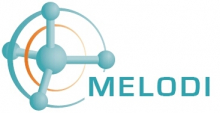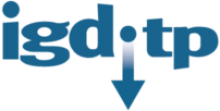The European Radioecology Alliance has links to other platforms involved in radiation protection within Europe, these are:
Multidisciplinary European Low Dose Initiative
The MELODI Association, founded in 2010 as an incorporated Association under the relevant French law, aims to bring together the main organizations responsible in Europe for radiation protection research, particularly for programming and implementing low-dose risk related research activities. The purpose of MELODI is to coordinate, promote and implement European research on the risks associated with low dose exposure to ionizing radiation. Currently, MELODI has 30 member organizations, coming from 16 EU Member States.
MELODI acts as a platform to promote research in the field of low dose exposures to reduce uncertainties in the knowledge base for radiation protection, in accordance with relevant European Union policies. In this context, it contributes to the definition of priority objectives in low-dose risk research, the identification of research Programmes and resources to be implemented in order to achieve these objectives, the assessment of results obtained, and the promotion of communication on these issues between the various parties involved. The MELODI Association organizes scientific and stakeholder workshops, promotes the visibility of the low-dose risk research area, and nominates ad hoc working groups on specific topics.
A major activity of MELODI is the establishment and updating of a Strategic Research Agenda (SRA) in low-dose risk research. The overall aim of the MELODI SRA is to focus research to provide the information needed for the consolidation of the scientific evidence in the area of low-dose radiation exposure to contribute to the definition of the EU radiation protection policies. This requires a forward thinking agenda to help frame the structure of a well-coordinated research Programme, and to establish the operational procedures for the development of MELODI to ensure a long-term commitment (>20 y) to low-dose risk research in Europe. The SRA is updated on a regular basis, via an open dialogue with the scientific community and various stakeholders. MELODI has three working groups focusing on the three topics SRA updating, access to research infrastructure and on education and training, respectively. A scientific board to advice MELODI on research matters has been installed. The MELODI Association is open to all organizations in Europe entrusted with missions in the field of low-dose radiation risk research, which are willing and capable to contribute to the goals of MELODI. A General Assembly is held once a year, together with an open MELODI workshop. Six international workshops were organized so far: in 2009 (Stuttgart, Germany), 2010 (Paris, France), 2011 (Rome, Italy), 2012 (Helsinki, Finland), 2013 (Brussels, Belgium), 2014 (Barcelona, Spain) and 2015 (Munich, Germany).
European Radiation Dosimetry Group
The European Radiation Dosimetry Group is a network of more than 60 institutions and more than 500 scientists from the European Union, Switzerland, Eastern and Central Europe. It serves the promotion of research and development and European cooperation in the field of the dosimetry of ionizing radiation. The scope of EURADOS includes the fields of radiation protection, retrospective dosimetry, environmental radiation monitoring, radiobiology, radiation therapy, diagnostic and interventional radiology. Its activities encompass the coordination of working groups. These promote technical development and its implementation into routine and contribute to compatibility within Europe and conformance with international practices. Further activities are the organization of scientific meetings and training activities, and the organization of intercomparisons and benchmark studies.
EURADOS e.V. is registered in the German Register of Societies as non-profit association. The General Assembly, composed of Voting Member institutions, is the decision making body. EURADOS e.V. is administered by a Council and legally represented by the Chairperson and Vice-Chairperson. The Chairperson is Werner Ruhm, head of the working group “Individual Dosimetry” at the Institute of Radiation Protection (Helmholtz Zentrum Munchen), Germany. The Vice-Chairperson is Filip Vanhavere, head of the Radiation Protection Dosimetry and Calibration Expert Group RDC (SCK•CEN), Belgium.
Network of European organisations involved in emergency and recovery preparedness and management
Created in June 2010 as a network of European organisations involved in emergency and recovery preparedness and management the NERIS Platform is currently composed of 56 organisations from 24 different countries from which 28 supporting organisations. The objectives of the Platform are to contribute to improving the effectiveness of current approaches for preparedness, promoting more coherent approaches, identifying gaps and needs for further developments, addressing new and emerging challenges and maintaining and improving know-how and technical expertise in this field.
The Strategic Research Agenda (SRA) has been structured in three main research areas covering new challenges in atmospheric & aquatic modelling, new challenges for better dose assessments and decision support based on improved knowledge and new challenges in stakeholder involvement and local preparedness and communication strategies. Several projects have been developed to contribute to the development of the research in this field, notably in the EC Research Framework Programme with the projects NERIS TP (2011-2014) and PREPARE (2013-2016).
The vision of the NERIS platform is that “by 2020, all European organizations being members of the association are sharing common views and common approaches and are developing and using compatible technology and methods for consequence management of the emergencies”. In respect to this vision, cooperation with international organisations with a mandate to harmonise response in Europe and worldwide has been established to favour them to become aware of NERIS scientific capabilities and research developments.
On 5 December 2013, NERIS signed a Memorandum of Understanding (MoU) with MELODI, ALLIANCE and EURADOS to confirm their joint commitment towards the consolidation and implementation of a strategic vision of radiation protection research in Europe. In this perspective, NERIS, together with the signatories of the MoU, is participating to the European Joint Programming CONCERT project on the organisation of the research in radiation protection in Europe in the perspective of Horizon 2020 of the European Commission.
European Alliance for Medical Radiation Protection Research
The European Alliance for Medical Radiation Protection Research (EURAMED) was established by five medical associations involved in the application of ionising radiation in medicine, namely the European Association of Nuclear Medicine (EANM), the European Federation of Organizations for Medical Physics (EFOMP), the European Federation of Radiographer Societies (EFRS), the European Society of Radiology (ESR) and the European Society for Radiotherapy and Oncology (ESTRO) with the goal of jointly improving medical care and its medical radiation protection issues through sustainable research efforts. Since October 1st, 2017 EURAMED is a non-profit organisation registered in Austria.
EURAMED complements existing established European platforms in several other fields of radiation protection and will thus create visibility for the medical field in this context. EURAMED’s overall vision is to lead the European research activities in medical radiation protection and to assume an umbrella function for the harmonisation of practice to advance the European radiation protection safety culture in medicine.
SHARE - European platform for Social Sciences and humanities research relating to ionizing radiation
The mission of SHARE is to stimulate the integration of social sciences and humanities (SSH) in research, practice and policy related to ionizing radiation, including, for example: radiation protection, low dose risk, radioecology, emergency preparedness and response, dosimetry, medical applications, radioactive waste management, nuclear energy production, safety, NORM, site remediation, radon etc. To this end, SHARE structures and enhances dialogue at the European level and beyond, among the different stakeholders, fostering the sharing of knowledge and information among various disciplines working on aspects of ionizing radiation. SHARE was officially launched in July 2019 with the first General Assembly held in Barcelona after the RICOMET 2019 conference. It currently involves 24 organisations from 13 different countries.
A prospective Strategic Research Agenda (SRA) for Social Sciences and Humanities (SSH) in radiological protection was developed by a collective of research institutes and universities. This is the first time such a research agenda has been proposed. Six research lines of interest and concern have been identified: (1) Effects of social, psychological and economic aspects on RP behaviour; (2) Holistic approaches to the governance of radiological risks; (3) Responsible research and innovation in RP; (4) Stakeholder engagement and participatory processes in RP research, development, policy and practice; (5) Risk communication; and (6) RP cultures. These topics were developed through broad stakeholder consultation, in conjunction with activities carried out in the framework of various projects and initiatives (EU H2020 CONCERT programme, the EU FP7 projects OPERRA, PREPARE and EAGLE, the 2015–2018 RICOMET series of conferences, and the 2014 and 2016 International Symposia on Ethics of Environmental Health); as well as through dialogues with members of the European radiation protection research communities. The six research lines open opportunities to integrate a range of key social and ethical considerations into RP, thereby expanding research opportunities and programmes and fostering collaborative approaches to research and innovation.
SHARE organizes annual conference RICOMET. The conference is a unique opportunity to collect state-of-the-art, present and discuss projects or research results since it is an international, multidisciplinary and stakeholder driven event, devoted to academics, researchers, experts and civil society stakeholders involved in social science and humanities research on ionizing radiation. The conference includes scientific sessions, workshops, round tables, parallel meetings and is attended by participants working in the field of SSH and ionizing radiation.
Implementing Geological Disposal of radioactive waste Technology Platform
The Implementing Geological Disposal of radioactive waste Technology Platform (IGD-TP) is dedicated to initiating and carrying out European strategic initiatives to facilitate the stepwise implementation of safe, deep geological disposal of spent fuel, high-level waste and other long-lived radioactive waste. It aims to address the remaining scientific, technological and social challenges, and support European waste management programmes.
The IGD-TP was launched on 12 November 2009, initiated by the European Commission and waste management organisations. Now solely funded by the waste management organisations, the group welcomes all interested parties (industry, research and academia, research centres, technical safety organisations, non-governmental organisations, associations, SMEs, …) endorsing the IGD-TP Vision and willing to contribute positively and constructively to the group’s goals, such as establishing and implementing the Strategic Research Agenda and participating in information exchange and knowledge transfer.
Page last updated: Apr/May 2020




